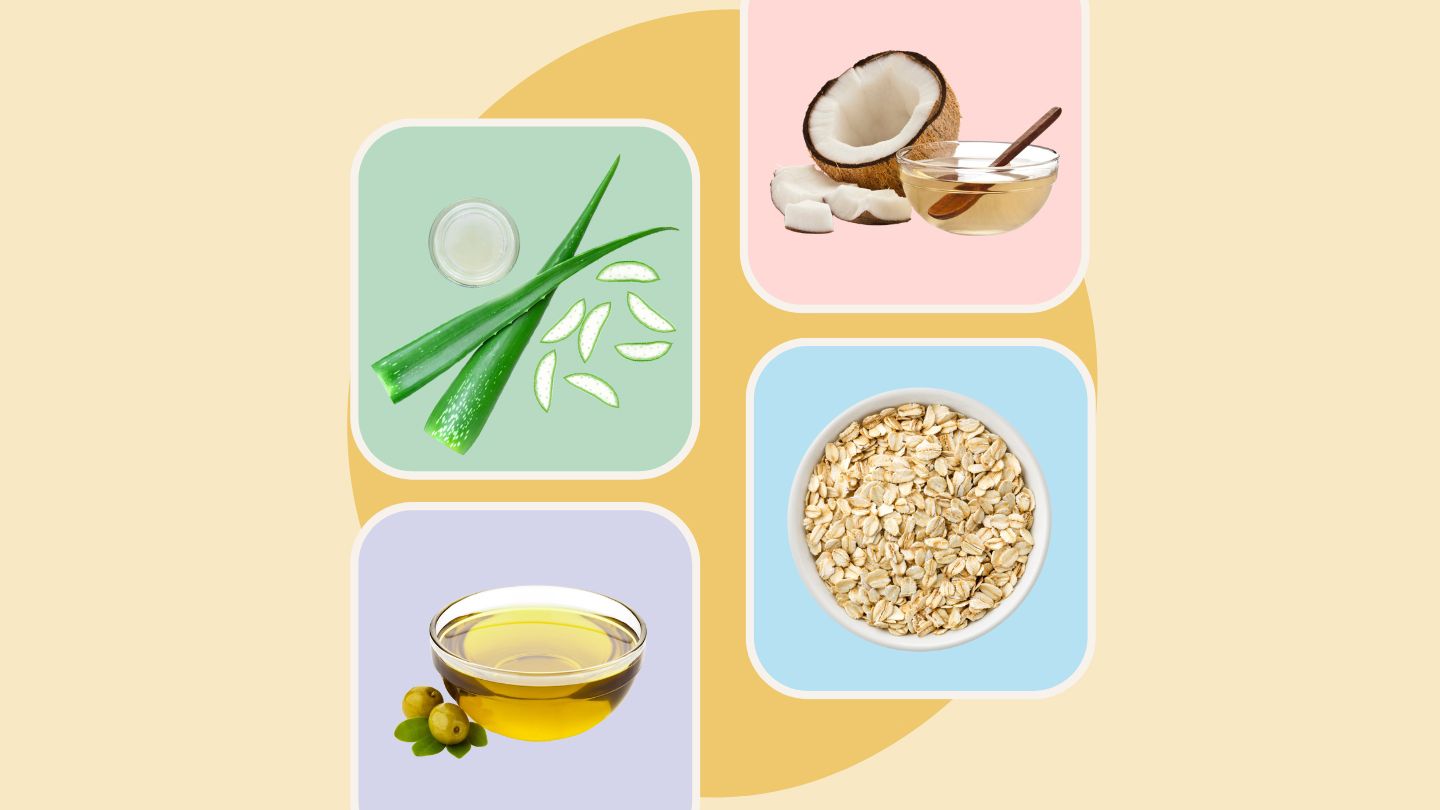1. Tea Tree Oil
Derived from a plant native to Australia, tea tree oil is an anti-inflammatory used to treat conditions ranging from nail fungus and athlete’s foot to psoriasis, says Jennifer Burns, a naturopathic doctor and researcher in traditional medicine at the Burns Integrative Wellness Center in Phoenix, Arizona.
To use, mix 1 part tea tree oil to 10 parts olive oil, then dab on affected areas with a cotton ball.
Some people are allergic to tea tree oil, so be sure to perform a patch test before applying (see below, on precautions).
2. Olive Oil
Olive oil is a great moisturizer that does double duty as an anti-inflammatory to calm irritated skin. Apply a small amount to your scalp, elbows, or anywhere you have psoriasis plaques, says Dr. Burns.
Or, for a soothing full-body soak, add 2 teaspoons (tsp) of warmed olive oil to your bath water.
3. Coconut Oil
Coconut oil can help counter dryness caused by psoriasis by trapping moisture in the skin, says Burns. Gently rub a small amount on psoriasis plaques, as you would any moisturizer. You can also use the oil on your scalp to help loosen psoriasis scales.
4. Oatmeal
Found in many health and beauty products, oatmeal can help relieve the itchiness and inflammation associated with psoriasis.
To prepare an oatmeal bath that won’t leave your tub full of soggy bits, add ½ cup of dry oats to a leg of pantyhose, knot the top, and drop it into the water before you step in.
Dr. Evans cautions: “Oatmeal baths are useful to calm itching, but they also can be very drying, which may exacerbate psoriasis — inherently a very dry condition.”
5. Apple Cider Vinegar
Apple cider vinegar can help calm psoriasis itch, but Burns warns that it’s important to dilute the vinegar properly before using.
She recommends mixing one part apple cider vinegar to two parts water. Dab the diluted vinegar onto your skin or scalp, avoiding any areas that are cracked or bleeding.
Be sure not to leave the solution on longer than 10 minutes; otherwise, it might make your skin even drier and more irritated.
6. Aloe Vera
You can use pure aloe gel, or look for creams with about 0.5 percent aloe content. Apply two to three times a day to soften skin and calm psoriasis flares.
7. Baking Soda
Baking soda isn’t just for cooking and cleaning: You can use it in your self-care routine for everything from whitening teeth to relieving the itchiness of psoriasis.
Burns recommends mixing 1 tsp of baking soda with a small amount of water to make a paste that you can apply to psoriasis patches.
Use with caution: “Baking soda can be helpful for itching, but, like oatmeal, it can be very drying,” Evans says.
8. Dead Sea Salt
People travel from all over the world to float in the Dead Sea, located on the border of Israel, the West Bank, and Jordan. This body of water is almost 10 times saltier than the ocean and rich in minerals with purported healing powers.
To relieve psoriasis itchiness and irritation at home, add Dead Sea salts (or substitute Epsom salts) to a warm bath, then soak for 10 to 15 minutes. Be sure to apply moisturizer afterward to prevent dryness.
9. Pine Bark Extract
Pine bark extract has antioxidant properties, Burns says, which may bolster the effects of your other psoriasis treatments. A cream containing pine bark extract, in the standardized form of Pyncnogenol, used directly on affected skin may help to reduce redness, thickness, and inflammation from psoriasis.
Just be sure to check with your dermatologist before adding pine bark to your routine.
10. Mahonia Aquifolium (Oregon Grape)
Mahonia aquifolium is a powerful antimicrobial herb. A review of clinical trials found that in 5 out of 7 research studies, mahonia led to an improvement in psoriasis symptoms, with minimal side effects.
Look for a cream containing 10 percent mahonia and apply it to any mild or moderate psoriasis plaques.
Precautions When Using Natural Remedies
While natural topical products are generally safe to use, it’s possible your skin might not react well to a given ingredient. To see if an ingredient or essential oil triggers an allergic reaction, perform a patch test: Apply a small amount to an area of skin, such as the inside of your forearm, then cover with a Band-Aid. “After a few days, if you don’t experience any negative reactions, then it would be safe to apply to larger areas of the body,” says Evans.
Evans recommends using small amounts on psoriasis areas to ensure you don’t have an allergic reaction before you apply more liberally.
She says she would give these natural treatments a month or so to see whether they lead to any improvement in psoriasis symptoms. “If they’re working, there should be a decrease in itching and burning,” she says. If they aren’t helping, you can try them a second time in combination with another remedy — “as long as there are no untoward effects,” she advises.
The Takeaway
- Certain natural remedies like olive oil and aloe vera have anti-inflammatory properties that may help relieve the itchiness of psoriasis when applied to your skin.
- Check with your doctor first if you’re considering adding any of these to your psoriasis care routine. Some ingredients may interact with medications you’re taking or cause irritation. These natural remedies are meant to complement your medical treatment, not replace it.
- Before applying to affected skin, perform a patch test to determine if you might have an allergic reaction to any ingredients.
Read the full article here




